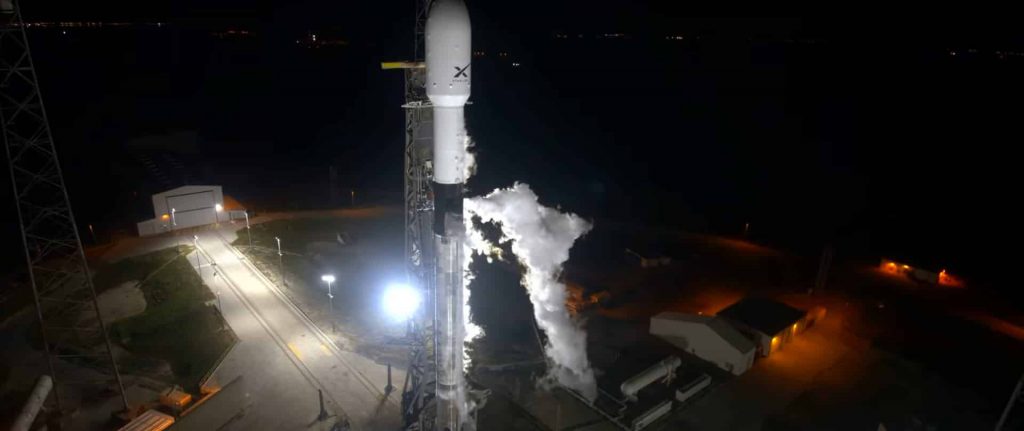CAPE CANAVERAL, Fla. — SpaceX on Saturday fired up the rocket that will ferry the company’s next batch of Starlink satellites into space.
The company conducted a static-fire test on Saturday (Jan. 4) of a Falcon 9 rocket at Space Launch Complex 40 at Cape Canaveral Air Force Station in Florida, the company said on Twitter. That rocket is expected to send 60 Starlink internet satellites into space no earlier than Monday (Jan. 6), marking the first launch of the year from Florida’s Space Coast.
The Falcon 9 rocket out of its hangar on Friday (Jan. 3) and went vertical on the launch pad in advance of the planned test-firing of its nine first-stage engines on Saturday. The two-stage rocket is scheduled for liftoff Monday at 9:19 p.m. EST (0219 GMT Tuesday).

This massive gaggle of smallsats will number more than 12,000 by the mid-2020s. SpaceX has made known its plans to deploy 30,000 more Starlink smallsats, bringing the total number of spacecraft in its super constellation to 42,000. The initial 12,000 satellites will orbit in three orbital shells: 1,600 will be placed in a 550 km (340 miles)-high altitude shell; 2,800 Ku- and Ka-band spectrum satellites at 1,150 km (710 miles) and 7,500 V-band satellites at 340 km (210 miles). Commercial operation for the in-orbit satellites will begin this year.
The previous Starlink launch, designated Mission 1, deployed 60 smallsats to LEO on Nov. 11, 2019. This group consisted of the first v1.0 spacecraft placed into orbit. This improved version will provide increased spectrum capacity for end-users by making full use of the Ka- and Ku-bands.

The total cost of the decade-long project to design, build and deploy this super constellation is estimated at over $10 billion. Questions, however, are being raised if SpaceX has enough money to see this ambitious project.
SpaceX said Starlink will become fully operational once 800 satellites are activated. Reaching this number will need a dozen more launches aboard SpaceX Falcon 9 launch vehicles. SpaceX’s Starlink smallsats have a flat-panel design and each weighs about 500 kg. SpaceX CEO Elon Musk in July 2019 said Starlink will offer a competitively priced alternative for people unhappy with their current internet service.

